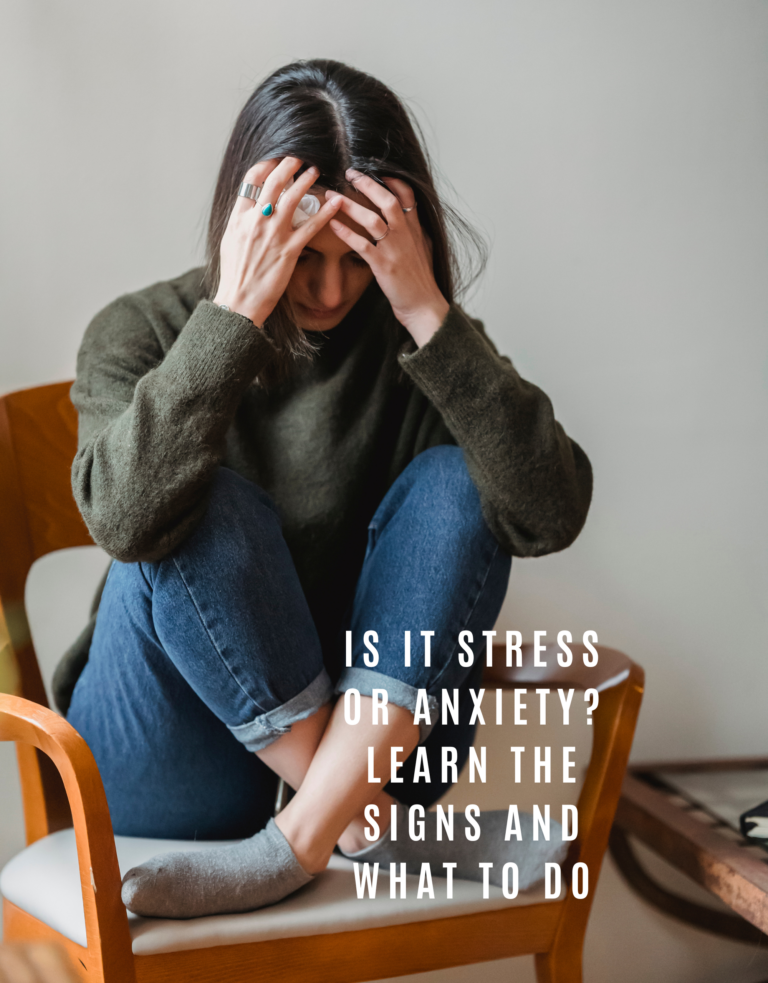How to Support a Teen with Anxiety
Introduction: The Struggles of Teen Anxiety
As a parent or caregiver, seeing your teen struggle with anxiety can be heartbreaking. When I think about my own teenage years, I remember feeling pressure from school, friendships, and growing expectations. For many teens today, anxiety can feel even more overwhelming, often manifesting as worry, irritability, or physical symptoms like headaches and stomachaches.
Teens with anxiety might appear withdrawn or act out in ways that seem confusing, but behind the behavior is a person who needs understanding and support.
If your teen is dealing with anxiety, it’s essential to know how to be there for them. In this article, I’ll share tips on how to support a teen with anxiety, from being a compassionate listener to helping them build healthy coping mechanisms.
What Does Teen Anxiety Look Like?
Teen anxiety can take on many different forms. While each individual’s experience is unique, common signs of anxiety in teens may include:
- Excessive worry about school, friendships, or the future
- Avoidance of certain activities or situations that cause distress (like social gatherings or schoolwork)
- Irritability or mood swings
- Physical symptoms, such as headaches, stomachaches, or frequent tiredness
- Difficulty concentrating or staying focused
- Sleep disturbances, including insomnia or excessive sleeping
It’s important to remember that anxiety doesn’t always look the same for every teen. Some may express their worries outwardly, while others may keep it to themselves. Acknowledging that anxiety can be internalized and difficult to recognize is key to providing the right support.
How to Support a Teen with Anxiety: Practical Tips
Supporting a teen with anxiety can be a delicate balancing act. On the one hand, you want to be there for them, offering a safe space to express their feelings. On the other hand, it’s important not to overprotect or enable avoidance behaviors. Here are some strategies to help guide your teen through their anxiety:
1. Be an Active Listener
One of the most important things you can do as a parent is to listen without judgment. Anxiety can be difficult to talk about, especially for teens who fear being misunderstood.
When your teen opens up, let them know you’re there to listen without offering immediate solutions or advice unless they ask. Sometimes, just being a compassionate listener can make a world of difference.
For instance, I remember a conversation with my friend’s daughter, Emma, who had been struggling with school anxiety. She started to share her fears about disappointing her teachers, and all her mom did was listen. That simple act of empathy helped Emma feel less alone in her experience.
2. Normalize Anxiety
Help your teen understand that anxiety is a natural response to stress. Almost everyone experiences anxiety at some point in their lives — it’s a normal part of being human.
You can talk to your teen about how anxiety affects everyone differently and encourage them to see anxiety as something that can be managed, not something to be ashamed of.
For example, explaining that feeling nervous before a big test is normal and that there are ways to manage it can help reduce the stigma. This understanding makes it easier for your teen to seek help and use coping mechanisms without feeling like something is “wrong” with them.
3. Encourage Healthy Coping Strategies
Rather than allowing anxiety to control their lives, encourage your teen to explore healthy coping mechanisms. This could include mindfulness, relaxation techniques, or physical activities like running or yoga.
When I worked with a teen who had anxiety about public speaking, we explored different breathing exercises that helped her feel more grounded and focused before giving presentations. These tools can help your teen feel more in control when anxiety arises.
Other techniques include:
- Deep breathing exercises: Inhale for four counts, hold for four counts, and exhale for four counts.
- Progressive muscle relaxation: Tense and then release different muscle groups to reduce physical tension.
- Journaling: Writing down thoughts and feelings to process emotions.
4. Help Them Manage Stress
Stress is often a trigger for anxiety, and it can stem from academic pressures, social situations, or extracurricular commitments. Help your teen break tasks into manageable steps rather than feeling overwhelmed by everything at once.
For instance, if they’re anxious about upcoming exams, encourage them to set up a study schedule with regular breaks, rather than cramming the night before. You can also help them set realistic goals, focusing on progress rather than perfection.
A Real-Life Example: How We Tackled School Stress
I once helped a friend’s son, Liam, who had developed a lot of anxiety around schoolwork. Instead of focusing on grades and perfection, we worked together on creating a study plan that broke down his assignments into smaller, less overwhelming tasks.
With my guidance and encouragement, Liam was able to approach his homework with a clearer mind, and he felt more in control of his schedule. This strategy helped him lower his anxiety and focus on doing his best rather than being paralyzed by fear of failure.
5. Encourage Regular Exercise
Physical activity is one of the most effective ways to reduce anxiety. Exercise releases endorphins, which naturally reduce stress. Encourage your teen to engage in activities they enjoy, whether it’s sports, dancing, or just going for a walk.
I’ve seen firsthand how running can be a game-changer for teens with anxiety. It’s not about pushing them into intense workouts; it’s about helping them find an enjoyable and accessible form of exercise that supports both their physical and mental health.
6. Seek Professional Help if Needed
If your teen’s anxiety is persistent, severe, or interfering with their daily life, it might be time to consult a mental health professional.
Therapy, such as Cognitive Behavioral Therapy (CBT), has proven to be effective in helping teens manage anxiety. In some cases, medication might be recommended to help manage anxiety symptoms.
Don’t hesitate to reach out for help if you feel that your teen’s anxiety is too much for them to handle on their own. Professional support can give them the tools and guidance they need to manage their anxiety in a healthy way.
Conclusion: Your Support Makes a Difference
Supporting a teen with anxiety isn’t always easy, but your understanding, patience, and guidance can make a significant difference in their ability to cope with stress and uncertainty. By being an empathetic listener, encouraging healthy habits, and seeking professional help when necessary, you’re helping your teen develop the tools they need to manage their anxiety and thrive.
Remember, it’s okay to not have all the answers. Your presence and support are the most important things you can offer.
Quick Summary
| Key Aspect | Description |
|---|---|
| Be an Active Listener | Listen empathetically without judgment when your teen shares their feelings |
| Normalize Anxiety | Help your teen understand that anxiety is a normal part of life and not something to be ashamed of |
| Encourage Healthy Coping | Suggest relaxation techniques, journaling, or physical activity to manage anxiety |
| Help Manage Stress | Break down overwhelming tasks into smaller steps and encourage realistic goal-setting |
| Encourage Exercise | Physical activity releases stress-reducing endorphins and supports mental health |
| Seek Professional Help | Consult a mental health professional if anxiety is persistent or overwhelming |







